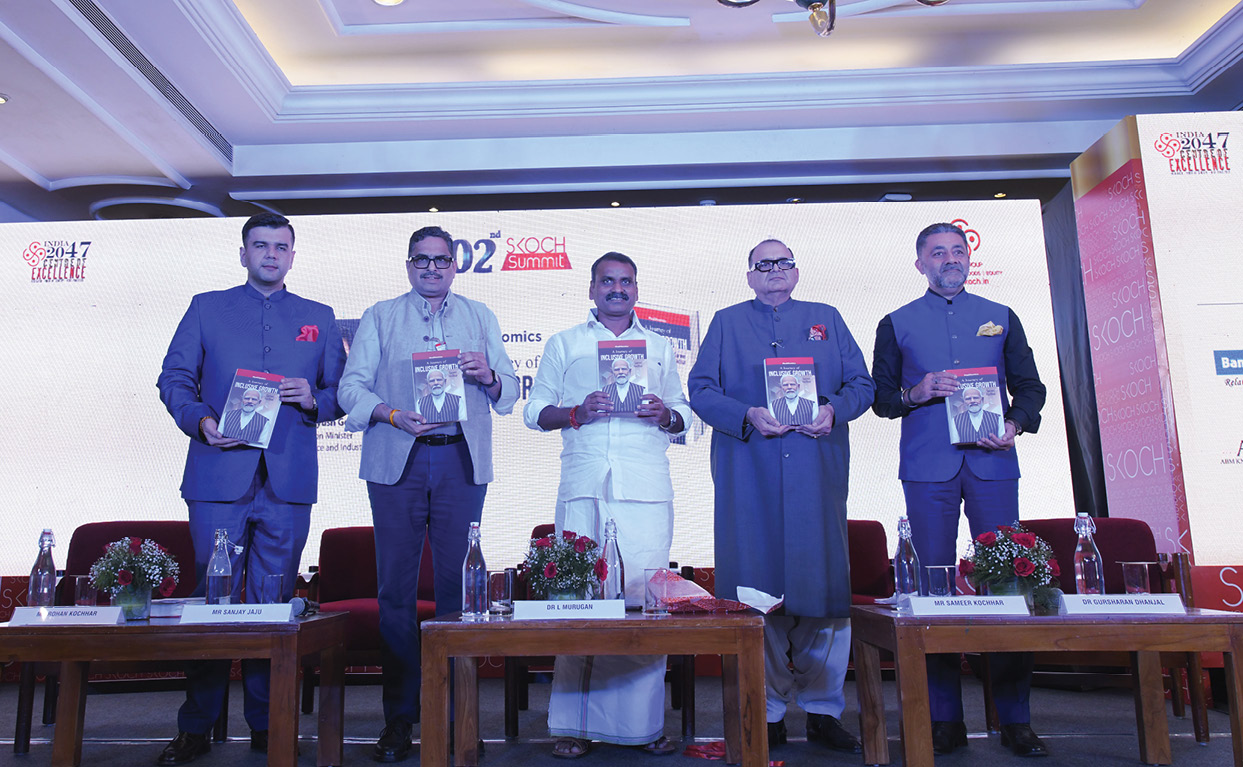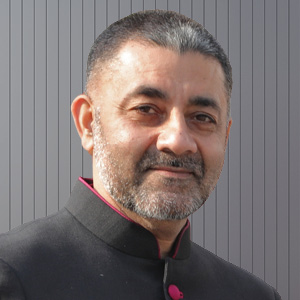Key Points*
- From Gujarat Model to India Model - Releasing Modinomics 2 captures how a state-led transformation has scaled into a nationwide template for inclusive growth.
- Original, First-Person Fieldwork – The 708-page volume is built on direct interviews and on-ground observation—documentation by the author, not secondary sources.
- People-First, Not Textbook Economics – “Modinomics” is framed as inclusive growth + inclusive governance—practical impact over theory or equations.
- Design for the “Last Person in the Queue” – Policy intent centers on those most underserved, making inclusion the benchmark for success.
- Ujjwala as a Multi-Benefit Case – Clean cooking delivers health gains, time savings for women, reduced deforestation/carbon, and lower household medical costs.
- A Playbook for Real Change – The book distills actionable nuances—how to translate intent into outcomes at scale.
- Speed with Rigor – Produced in ~4–4.5 months, aided by critique and inputs from public leaders—without compromising depth.
- SKOCH’s 25-Year Lens – Celebrates the community that helps evaluate and surface scalable projects (e.g., early e-governance successes highlighted at SKOCH).
- Reader Invitation – Promises a “ton of knowledge”—encouraging practitioners and citizens to read, learn, and apply.
- Gratitude & Congratulations – Thanks to dignitaries and contributors; applause for Sameer Kochhar’s herculean documentation effort. Jai Hind.
* This content is AI generated. It is suggested to read the full transcript for any furthur clarity.
Transcript
This indeed is a momentous occasion. The experience of Modinomics has been repeated once again. The learning out of this has only been one to my mind that whatever was captured in Modinomics 1—that was the story of the transformation of Gujarat. And now whatever has been captured in Modinomics 2 as the journey of inclusive growth is something which has scaled. Something that was born as part of the Gujarat model has now become the India model.
You know what is unique about the book? It is not based on what has already been published. It is purely based on the experience which has been collected, drawn after having visited, spoken or interacted with the people who have been directly impacted by that. That is the sole reason why this is not a book which carries many references. It carries the references of the work which has been done by Mr. Kochhar himself. And this has been done in first person. Believe me, 700 pages you can't write in first person. That's been a herculean task.
So the experience, the wealth of experience that has been captured over last 25 years has gone along in these 708 pages. When you read, you realize that there is no hardcore economics in it. There is no trigonometry, there is no mathematics. It's purely inclusive growth. The very word Modinomics means something—when you come to define it, no dictionary will define. No person can easily define. As the very first book which was done, which said inclusive growth, inclusive governance.
So that's been the hallmark of the Honorable Prime Minister that whatever he does, he does with keeping in mind the last person in the queue. Many examples have been quoted in the book. There are nuances within that. I just quote one which is Ujjwala Yojana which the Honorable Minister talked about. Mr. Jaju also mentioned. It is not killing one bird, two birds with a single stone, it's multiple.
Realizing that a woman wakes up at 4:00 in the morning, trudges to pick up fuel wood, comes home, cooks and experiences and inhales the smoke. And the house is also full of smoke, children, everybody in the family does clean cooking medium which is the LPG. So you brought cleanliness in the house. Second, a woman does not have to trudge. So you're saving her time which is what now she can devote to the family as mother and as the lady of the house. The third is you are preventing deforestation so you are saving on carbon, you are saving your climate. Fourth is that you are improving on the health quotient of not only the woman of the house but the entire family is equal to happiness. That means to say not falling sick is saving money. And this is not meant for you and me, this is meant for again the person in the last person in the queue.
So there have been many such instances wherein we have gone beyond. While Mr. Kochhar writing this book, capturing those attributes, those nuances which tell as to if you really indeed need to bring any kind of change, how do you do that? So the rest I leave up to you as readers. When you pick up the book, you will realize there is a ton of knowledge that it brings onto the table.
So with this I express my heartfelt thanks and gratitude to the Honorable Minister. His words exude those ideas and aspirations which go towards fulfillment as a result of the book that it embodies. Our Guest of Honor, Mr. Sanjay Jaju—thanks to him as well. Not only for gracing the occasion, but also bringing the critique, the inputs, his ideas as well as guidance. While Mr. Kochhar went through the book burning the midnight oil and producing it in a short span of four, four and a half months.
Mr. Kochhar Jr., Rohan, for bringing a perspective to the book and of course to our distinguished audience and the listeners for extending your support to us—investing not only your time, you have also been participating in our process of evaluation of those projects which have actually delivered the outcomes and scale. One such project was mentioned by Mr. Jaju himself, Socram, which he said that we discovered. But yes, many such beacons of hope we have discovered in last 25 years and we have seen them scale.
So congratulations to all of you and my heartfelt thanks to the gentlemen on the stage once again. And congratulations to Mr. Sameer Kochhar and indeed for bringing this together. Jai Hind.

